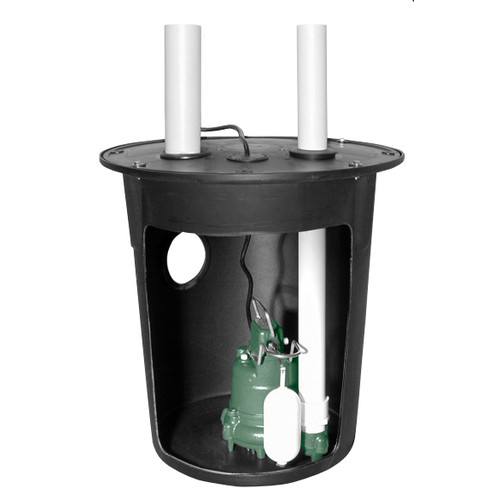Understanding the Key Components of Effective Water Filtration Systems

Importance of Water Filtration Systems
Water filtering systems play a critical role in making sure accessibility to clean and risk-free alcohol consumption water by effectively removing contaminants and contaminations. These systems are vital in attending to the expanding issues over water high quality and the possible health threats connected with eating polluted water. By utilizing various purification devices such as reverse osmosis, triggered carbon, and UV sterilization, water filtering systems can efficiently get rid of unsafe compounds like germs, viruses, hefty metals, and chemicals from the water.
In addition, water purification systems aid to improve the preference and smell of water by removing chlorine, sediments, and other pollutants that can affect its top quality. Well Pump Replacement. This enhancement in water top quality not only makes it more palatable however likewise urges people to drink an ample amount of water daily, advertising far better hydration and total health and wellness
Sorts Of Filtering Elements

Physical filters are designed to physically strain out impurities from the water. These filters can be made of products like ceramic, carbon, or also sand, and they work by capturing fragments bigger than the filter's pores as water travels through.
Chemical filters use various chemical procedures to get rid of impurities from the water. Examples include triggered carbon filters, which adsorb contaminations, and turn around osmosis membranes, which make use of stress to different pollutants from the water.
Organic filters make use of living microorganisms like bacteria or algae to break down raw material and pollutants in the water. These filters are commonly used in wastewater treatment plants or all-natural water filtration systems.
Understanding the various kinds of purification parts is vital for selecting one of the most ideal water filtration system for certain purification needs.
Feature of Sediment Filters
Sediment filters play an essential role in water filtration systems by successfully recording strong fragments suspended in the water. These helpful resources filters are typically the first line of protection in a filtering system, eliminating bigger bits such as sand, silt, dust, and corrosion prior to the water moves through finer filtering phases. By trapping these debris, the filters prevent them from reaching downstream elements, therefore expanding the life-span and performance of the entire system.
Disregarding this maintenance can lead to blocking, reduced water circulation, and compromised filtering efficiency. Generally, debris filters are important components that add substantially to the efficiency of water purification systems.
Role of Activated Carbon Filters
Playing an important function in water filtering systems, turned on carbon filters are critical in removing impurities and impurities from the water supply. As water passes with the filter, the triggered carbon holds and attracts onto the impurities, ensuring that the water that comes out on the various other side is cleaner and much safer for consumption.
Turned on carbon filters are very efficient at enhancing the preference and odor of water by decreasing chemicals that can influence its high quality. They are additionally capable of eliminating particular heavy metals like lead and mercury. Furthermore, his response these filters can help avoid the build-up of microorganisms and algae in water, more improving its general top quality. Due to their adaptability and integrity, turned on carbon filters are a vital component in guaranteeing that water is purified to the greatest requirements before reaching consumers.
Comprehending Reverse Osmosis Solutions
Reverse osmosis systems are sophisticated water purification systems that use an innovative procedure to eliminate contaminants and contaminations from alcohol consumption water. These systems work by applying stress to the water, compeling it through a semi-permeable membrane layer. This membrane layer works as a barrier, allowing only distilled water molecules to travel through, while blocking bigger particles such as minerals, chemicals, and other impurities. Therefore, the water that comes out on the various other side is considerably cleaner and safer for usage.
In addition, reverse osmosis systems are reasonably low-maintenance and can be mounted under the sink or in a main purification system, offering convenient access to tidy water throughout the family. Generally, understanding just how reverse osmosis systems work can help people make educated decisions concerning their water filtering needs.
Conclusion
In verdict, efficient water filtration systems are essential for making sure clean and secure alcohol consumption water. The essential components of these systems consist of sediment filters, turned on carbon filters, and reverse osmosis systems. By recognizing the function and duty of each component, individuals can make enlightened decisions when choosing a water purification system. It is very important to prioritize the top quality of water in order to advertise overall wellness and wellness.
Water filtration systems play a critical duty in making certain accessibility to secure and clean alcohol consumption water by effectively eliminating pollutants and impurities. By utilizing different purification mechanisms such as reverse osmosis, activated carbon, and UV sanitation, water purification systems can efficiently eliminate dangerous substances like bacteria, viruses, hefty steels, and chemicals from the water supply.
Debris filters play an essential function in water filtering systems by properly capturing solid particles suspended in the water (Water Filtration Systems).Playing an important function in water look at this website purification systems, turned on carbon filters are instrumental in removing impurities and contaminants from the water supply.Reverse osmosis systems are sophisticated water filtering systems that utilize an advanced process to eliminate pollutants and pollutants from drinking water